11 Expert-Backed Winter Safety Tips Everyone Should Follow in 2019
From what you're wearing to what you're drinking, this advice will keep you safe all winter long.
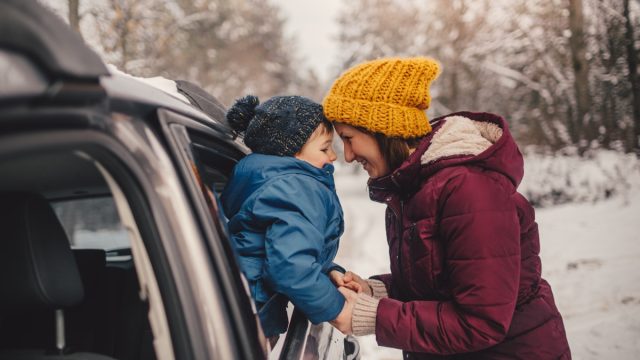
With temperatures dropping and snow starting to fall, winter weather is here—and, unfortunately, so are the challenges that come with it. The coldest season of the year has serious effects on your health, your home, and many other aspects of your life, but we talked to some experts for advice on staying safe and warm no matter what storms you find yourself weathering. Fend off frostbite and avoid other cold weather woes with these winter safety tips that will help you combat even the worst of what the subzero temperatures bring.
1
Keep a hard copy of emergency contacts and important numbers.

Severe weather is a common cause of power outages, and we all know winter can bring some of the most extreme storms. In fact, according to 2014 data from Climate Central, 18 percent of weather-related power outages between 2003 and 2012 were caused by extreme cold or ice storms. To avoid being completely isolated and vulnerable in the event you experience a power outage at home, keep an up-to-date physical document of emergency contacts and other important numbers that you can locate, even in the dark. Because, while you can't charge your smartphone if the power is out, that trusty landline may still have a dial tone!
2
Keep an emergency cold-weather kit in your car.
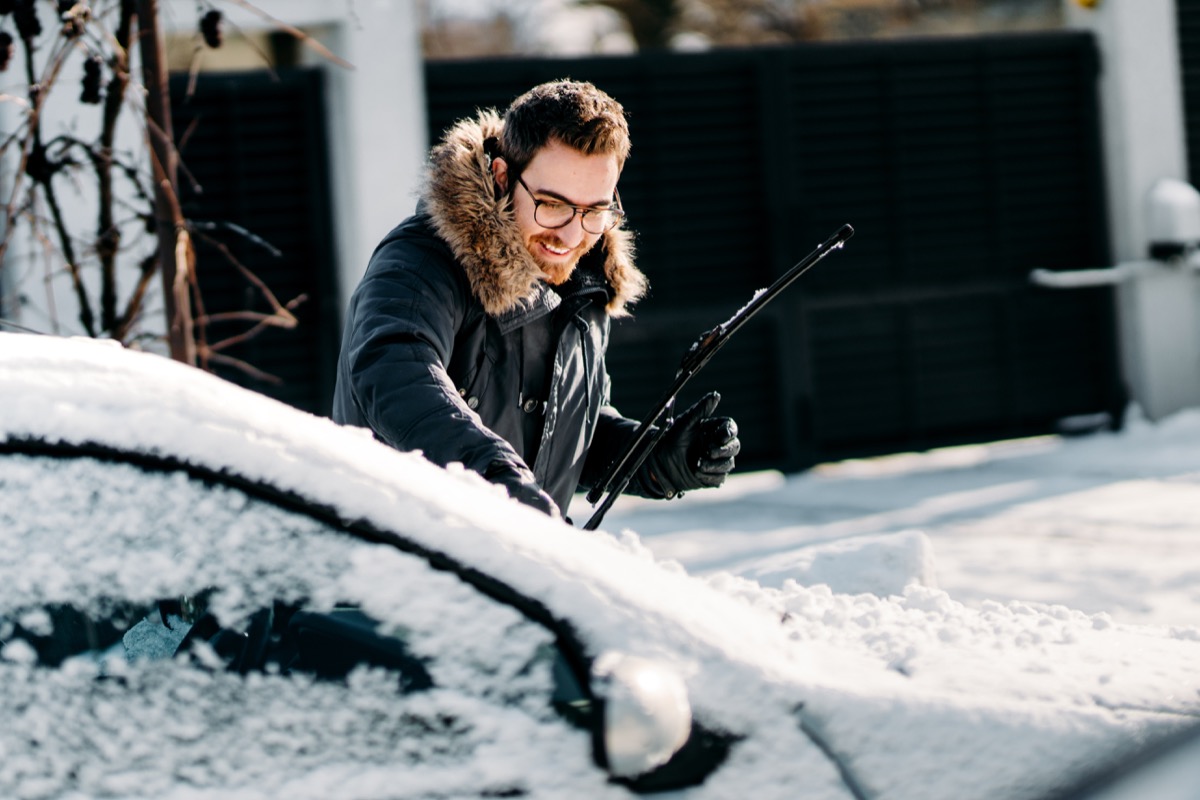
The snow, ice, and poor visibility that winter brings make for driving conditions that are less than ideal, causing an uptick in accidents. According to the U.S. Department of Transportation's Federal Highway Administration, 18 percent of weather-related car accidents occur during snow or sleet, 16 percent take place on snowy or slushy pavement, and 13 percent occur on icy pavement. So when you have to drive in bad winter weather—or any inclement weather, for that matter—it's best to be prepared for the worst.
"With extreme cold, the car accidents that do happen can be even more deadly," says Lewis Peters of winter safety website Online Rock Salt. "What we recommend is packing a small bag of winter essentials like flashlights, car chargers, bottled water, warm clothing, and snacks in the trunk of a car, which will greatly increase chances of survival if an accident occurs."
3
Don't wear cotton.
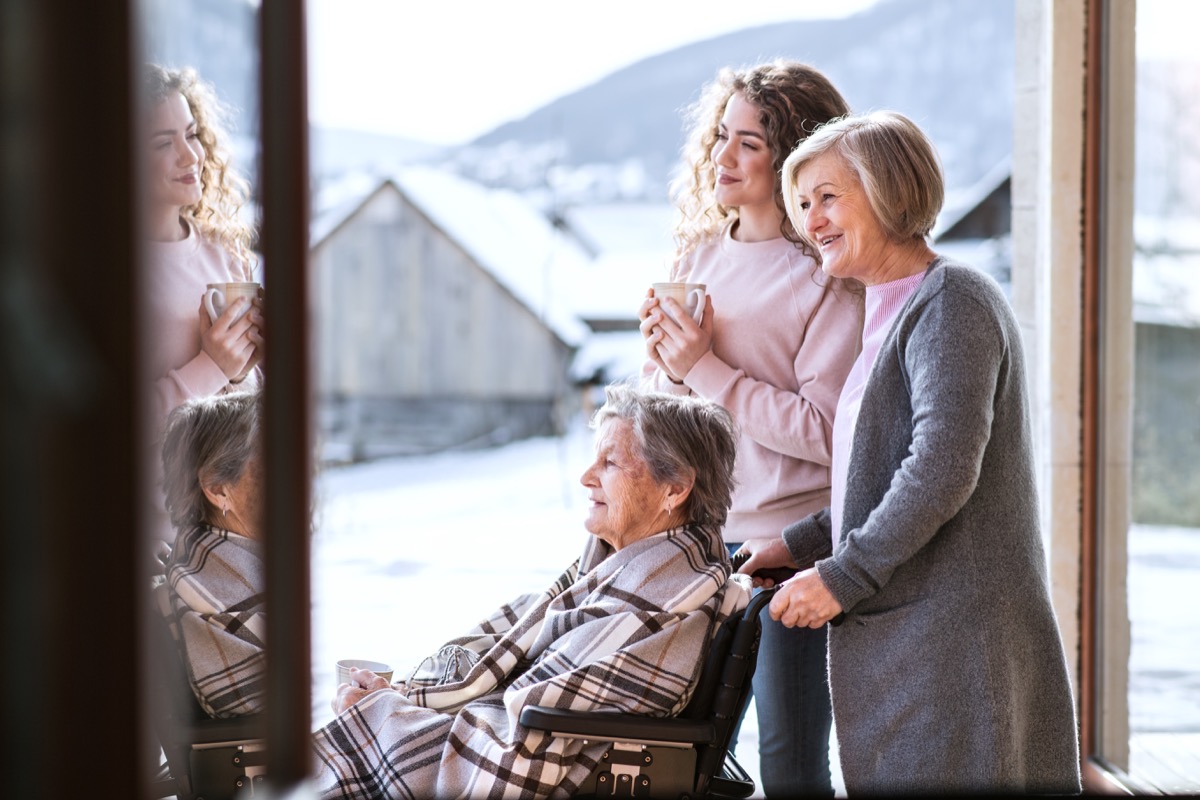
Be sure that warm clothing you pack in your emergency car kit is made of the right material. We all love the touch and feel of cotton, all easy-breezy and unrestrictive, but in the cold, cotton should not be the fabric of your life. Not only does it provide little to no insulation from the cold, but it can also absorb a lot of water—up to 27 times its weight, according to the experts at the Appalachian Mountain Club. And wearing damp clothing in cold weather is one of the many ways you can get hypothermia. Instead, the Centers for Disease Control and Prevention (CDC) recommends wearing fabrics like wool, silk, or polypropylene for inner layers.
4
Keep thermal blankets at home and in your car.
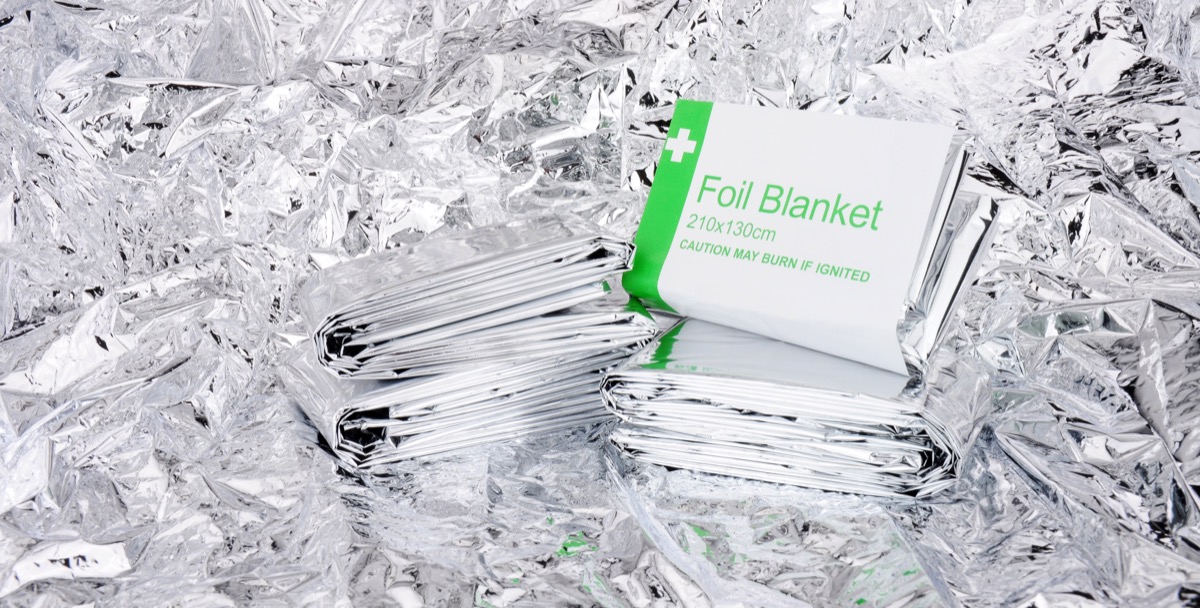
Another thing you should have in that emergency kit? Thermal blankets, which can help you through even the coldest of cold weather, says Sam Maizlech, an outdoor survival expert with Glacier Wellness. "The cheapest and easiest way to ensure you and your family will always be safe in the winter is to purchase a box of emergency thermal blankets," Maizlech says. "You can even keep a few in your car in case of a breakdown. They are extremely small and compact, and several can easily fit in any glove compartment."
5
Know your weather-related vocabulary.
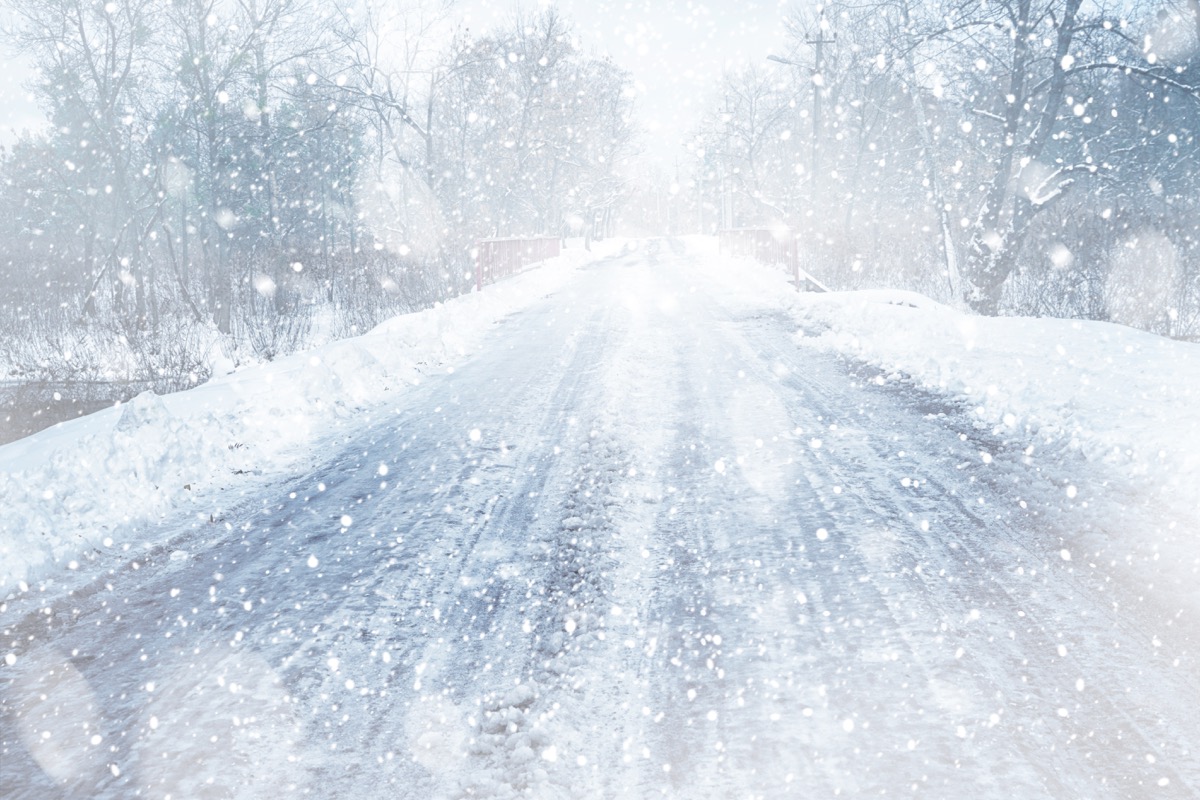
With so many different types of winter weather conditions, it's hard to know exactly what to expect when you hear an alert come over the TV or radio. And in case you are unable to turn to Google due to a power outage, you should have a general grasp on what certain winter weather terms mean so that you know how to prepare.
For instance, a "winter storm watch" means that hazardous winter weather is likely to arrive in the next 12 to 24 hours, while a "winter storm warning" means dangerous winter weather is imminent. To expand upon your winter weather lexicon, you can consult the Old Farmer's Almanac, which has a comprehensive list.
6
Don't drink too much.

With all the holiday festivities the winter brings, it's hard to resist that second glass of eggnog or spiked cider. But despite that warm feeling we think we get from our favorite adult beverages, a pivotal 2005 study published in the journal Alcohol found that the intoxicant actually lowers your body's core temperature. So, after a few hot toddies, don't brave the cold without being properly dressed just because you feel warm.
7
Cover up your hands and feet in particular.
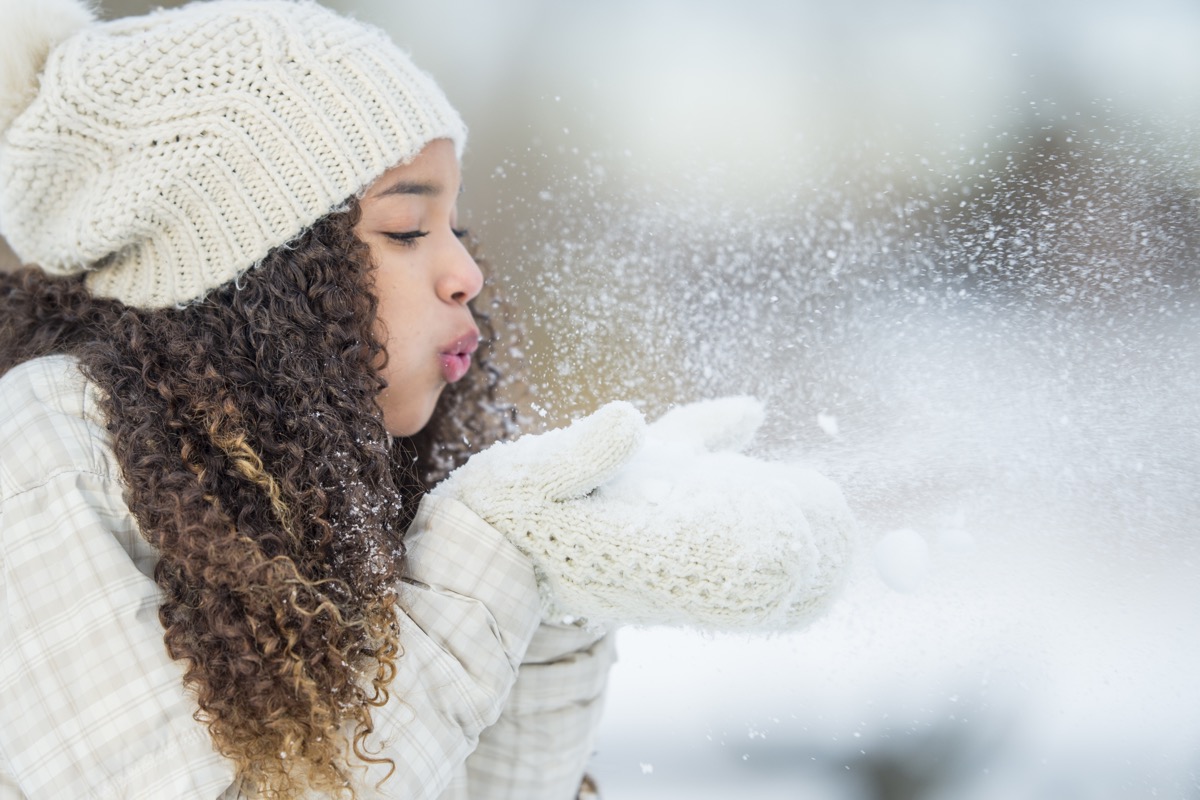
"Properly dressed" for winter means protecting your body's extremities, where cases of frostbite most commonly occur, according to the Mayo Clinic.
When you're cold, your body pulls blood from your hands and feet to your core in order to warm up your overall body temperature and vital organs. But that leads to decreased blood flow to your extremities, which can cause frostbite—hence the value of having a good pair of gloves, winter boots, and warm socks.
8
Stretch regularly to avoid injuries.
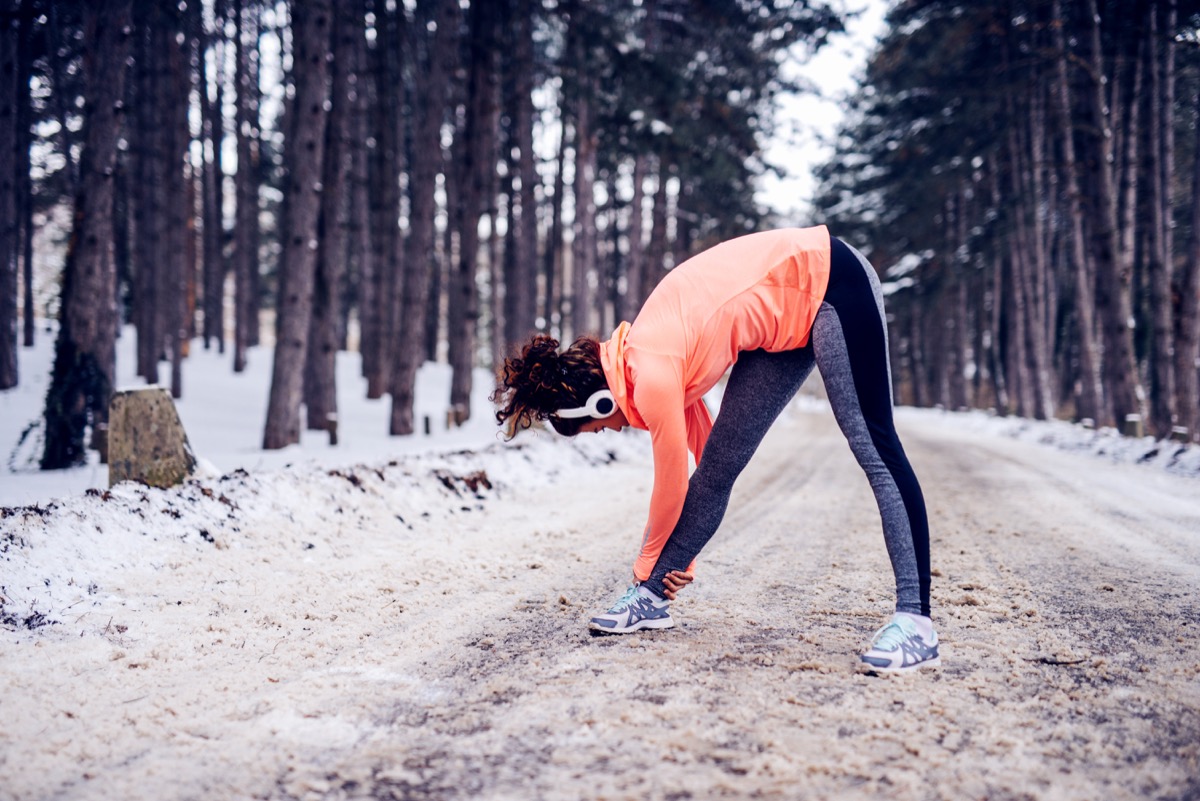
Avoiding winter injuries may not be your first thought this holiday season, but in cold weather, it's important to stretch, even if you aren't planning on exercising. "To avoid winter injuries, make stretching a regular part of your day," says Allen Conrad, CSCS, owner of Montgomery County Chiropractic Center. "When the weather gets colder, muscles contract and tighten, which makes them more prone to injury. Regular stretching during winter months can help prevent back pain and sciatica."
9
Check your carbon monoxide detector.
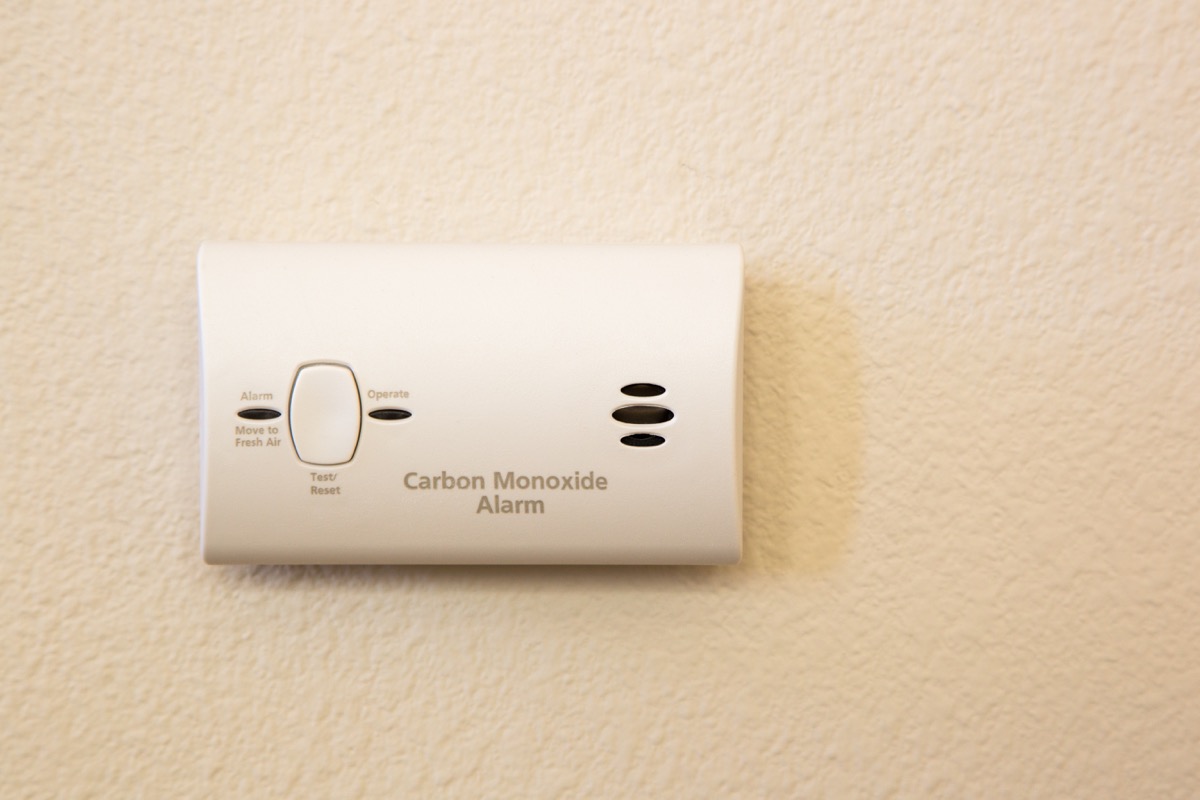
According to the CDC, the winter months bring an increased risk of fatal carbon monoxide poisoning due to the constant running of home heating systems. In fact, there are more than 400 deaths in the U.S. from unintentional carbon monoxide poisoning every year and more than 20,000 emergency room room visits, according to the CDC.
The good news is that it's easily preventable. The first step is to make sure you detector is working properly and to change out the batteries at the start of the winter season. And the next step is…
10
Have your heating system serviced.
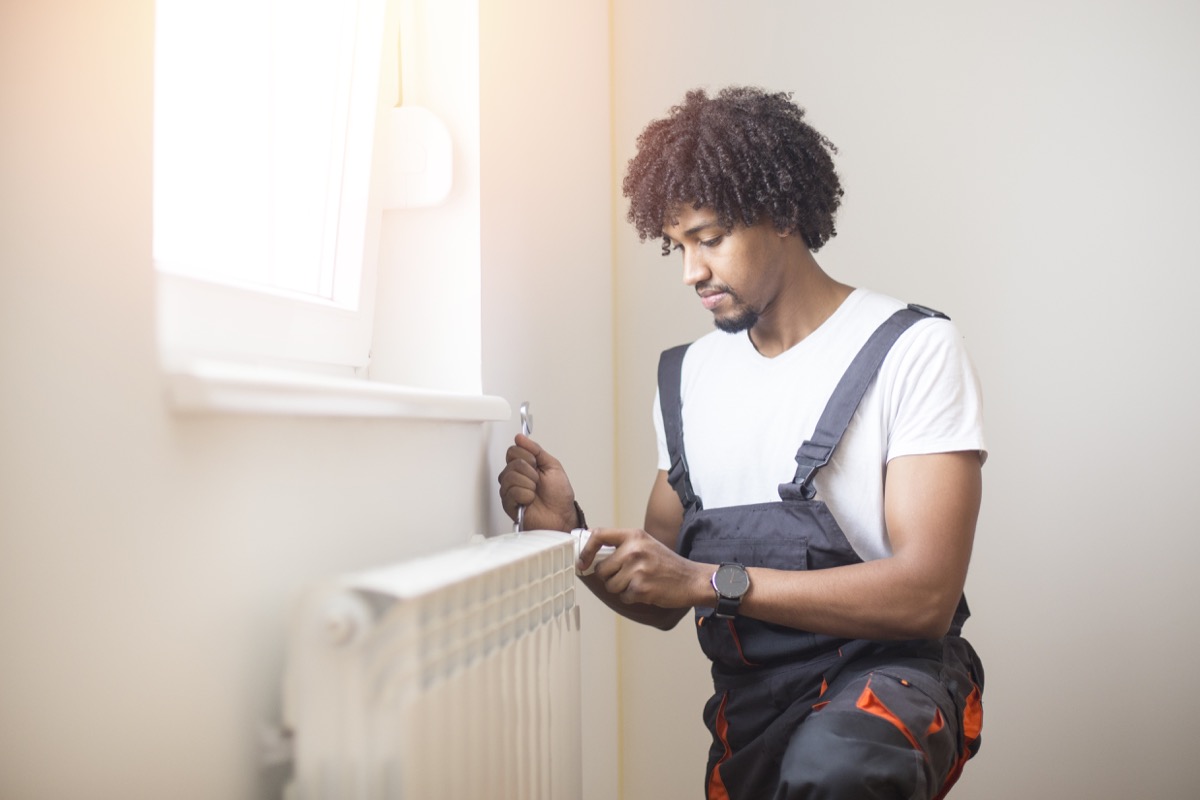
There's no doubt your heating system will get plenty of use in the winter, so it's imperative that you ensure it's in good working condition. D'Aydra Allen, a heating expert with ECA DuctWorks, says your HVAC system should be serviced at least twice a year—one of those times being right before winter hits.
"Your heating system should be cleaned, filters should be changed, and an HVAC technician should give your system a full inspection," she says. This can prevent any outages or complications with your heating system that could bring about potential dangers in the winter for you and your home.
11
Be careful with space heaters.
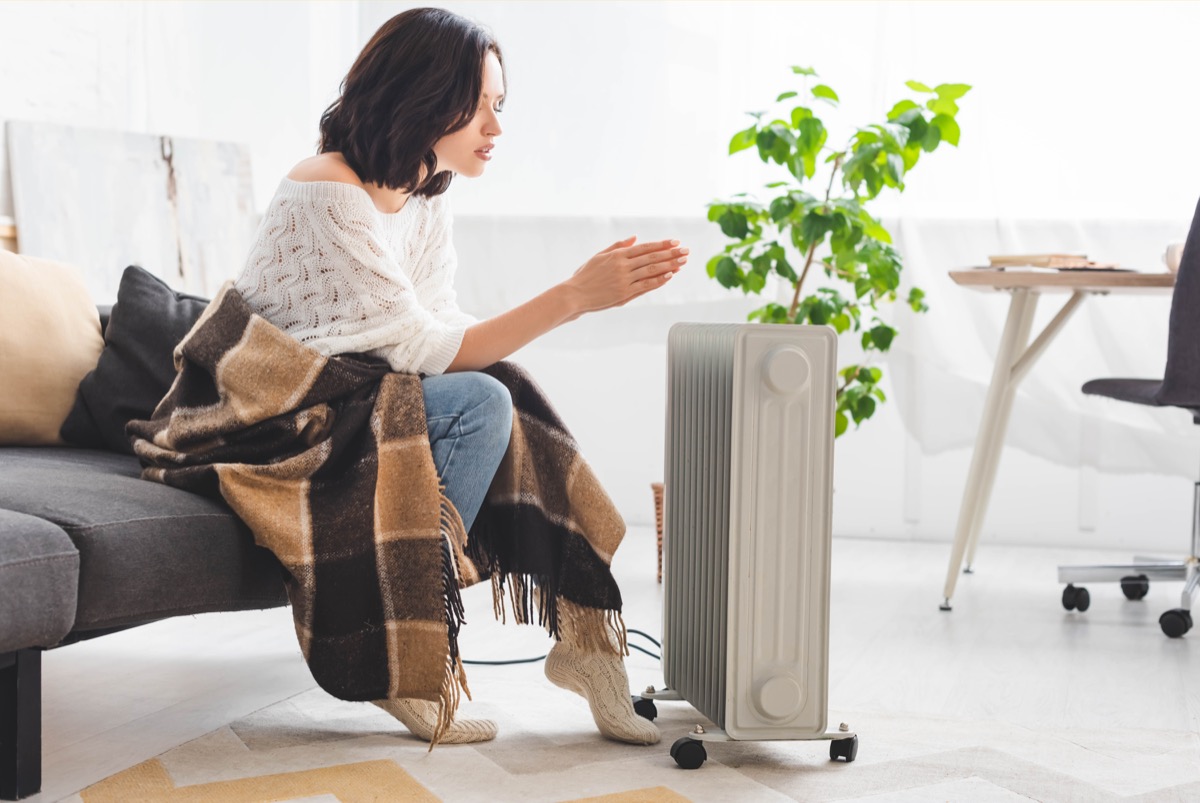
Everyone wants a warm home when it's cold outside, and sometimes that requires bringing in an extra heat source for optimal coziness, like a space heater. But that comes with a whole other set of concerns, considering that more than 65,000 home fires in the United States are caused by heating equipment each year, according to the Electrical Safety Foundation International (EFSI).
So, how do you stay warm and safe? "Unplug your space heater when you're out of the room," says Matthias Alleckna, an energy analyst with Energy Rates in Canada. "Not only will you save money from not heating up an empty room, but you'll also mitigate the risk of it over-heating or malfunctioning and burning the house down." The EFSI also recommends keeping space heaters at least three feet away from any flammable materials, including clothes and rugs.





















